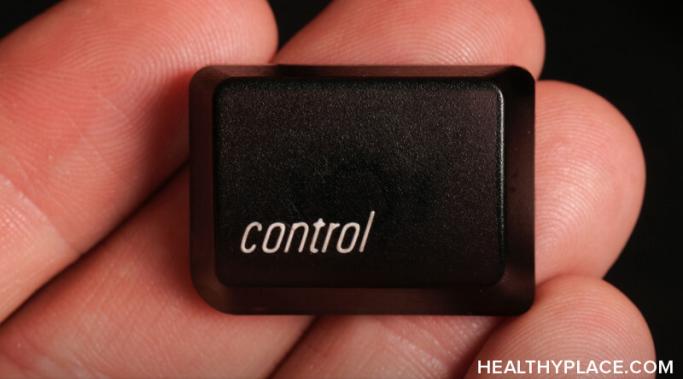Having a relationship with a person with borderline personality disorder (BPD) tends to be thought of as a tumultuous endeavor. In my opinion, there continues to be an immense stigma and misunderstanding around mental illnesses in our society. However, when it comes to personality disorders, such as borderline personality disorder, this stigma can be much more intense. Sadly, I have seen how the chronicity of personality disorders has led to a resistance to treat, even among mental health professionals. Yet, those diagnosed with personality disorders have the capacity to create a life worth living and are worthy of all available and effective treatment. I currently work with individuals diagnosed with borderline personality disorder and have found therapeutic interventions to be very rewarding, especially when it comes to interpersonal effectiveness and relationships.
Dating Relationships
I am currently using opposite action to save my social life. Learn how opposite action, a dialectical behavior therapy (DBT) skill, is helping me.
Dating someone with disordered eating can be confusing. I've never been in a relationship where my significant other totally gets my complicated relationship with food or my disordered eating habits. Despite their best efforts to empathize and understand, there seems to be a fundamental misunderstanding regarding these habits and the underlying motivations and experiences.
Do you have phone anxiety? In our current society, there are nearly endless forms of communication. With these new forms of communication comes new anxiety. After all, there is no denying that a lot can be lost in translation when communicating via technology, as opposed to catching up with someone face-to-face. Add a dash of generalized anxiety disorder into the mix, and this phone anxiety can skyrocket and become nearly unbearable. Here are some ways that I have learned to cope with phone anxiety.
My mental health condition affects the breakups I've experienced. A breakup, or the ending of any relationship, can be one of the most devastating events that anyone may have to face in their life. As someone who used to describe myself as a serial monogamist, I sure have had my fair share of heartbreak. I understand that no one enjoys getting broken up with; however, I have noticed that breakups hit me harder than most. I have always been someone who feels extraordinarily deeply, both the good and the bad. This ability to feel deeply, combined with my mental health conditions, has affected how I experience breakups in a myriad of ways.
Years ago, I was the queen of passivity, but the dialectical behavior therapy (DBT) FAST skill helped me overcome it. It used to be that I avoided conflict and difficult conversations at all costs and refused to put my needs and desires first. I would come up with scripts in my head of what to say; however, as soon as an intense conversation would begin, I felt my self-respect fade away ("Show Yourself Respect: How to Communicate with Confidence"). I wished that I could trade in my copious amounts of passivity for self-respect, but something always got in the way. Fortunately, in the past year, I have learned how to maintain self-respect during a conflict by following a few simple steps set out by the DBT FAST skill.
Being in a relationship with a partner who is experiencing suicidal ideations can be emotionally taxing and daunting. There is this complicated pattern in my dating life in that the partners I loved most threatened suicide at least once. I am still trying to figure out exactly why I am drawn to individuals who experience such turmoil. Perhaps it is because I had ideations when I was in high school, and I feel like these partners understand me. Maybe I cannot compartmentalize the social worker in me when it comes to dating, and I want to try and "save" everyone I meet. Regardless, here are the things I wish I had known when I dated someone who threatened suicide. (Note: This post contains a trigger warning.)
Do you know how to recognize an emotionally abusive relationship? When our society discusses relationship abuse, there is often a focus on the more overt forms such as sexual abuse and physical abuse. It is not uncommon for emotional abuse, which can often take on a more subtler form, to slip by unnoticed. In my experience, there is also a hesitancy to acknowledge this form of abuse and validate its existence. However, being with an emotionally controlling and manipulative partner can have lasting detrimental effects on our psyche. Therefore, it is imperative to recognize an emotionally abusive relationship's signs, even the ever so subtle ones, that you may be in an emotionally abusive relationship.
Sex after sexual abuse: what's it like? Sexual abuse has a huge impact on my sex life. After two instances of sexual abuse, I felt that my sexuality no longer belonged to me. Twice my body was treated as an object to be used by my abusers as they saw fit, first during my childhood at the hands of a family member, then later by a stranger on a train. Though I didn't realize it at the time, I accepted that my sexuality belonged to the men I slept with and not to me. It took me a long time to confront this truth about the impact of sexual abuse on my sex life, and I still haven't deconstructed the many ways that these instances of abuse eventually brought me to my experiences with sex now. I decided to use this blog as a place to explore this.
Although many people struggle to set boundaries in relationships, doing so can drastically improve your mental health in the long run. For years, I would passively agree to anything that anyone asked of me. If I wanted to say no, my anxiety and depression would infiltrate into my thoughts, telling me that I had to go above and beyond to make people approve of me. I was seeking approval and admiration in the least healthy ways, and this began to take a toll on my mental health. Eventually, I felt empty. Setting boundaries in relationships has a lot to do with self-care, in my opinion. If you are feeling burnt out from a lack of pre-set limits, you are swiftly losing your emotional energy and potentially your sense of self.









